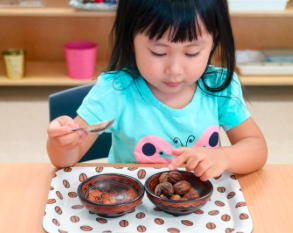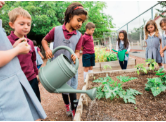Repetition is one of the most effective tools in early childhood education. Young children thrive on familiar routines, repeated activities, and recurring experiences. When used thoughtfully, repetition helps build confidence, deepen understanding, and lay a strong foundation for future learning.
Why Repetition Matters
During the early years, children’s brains are rapidly developing. Repeated exposure to concepts, words, and actions strengthens neural connections, making it easier for children to retain and recall information. Whether it’s singing the same song daily, practicing letter sounds, or rereading a favorite story, repetition helps solidify learning.
Building Language and Vocabulary
Repetition supports language development by giving children multiple chances to hear and practice new words. Reading the same book several times may seem boring to adults, but for a child, it reinforces word recognition, story structure, and comprehension. Songs, rhymes, and chants also benefit from repeated use, encouraging active participation and speech development.
Creating Consistent Routines
Predictable routines that repeat each day help children feel secure and in control. Morning greetings, clean-up songs, and end-of-day reflections provide structure and help children understand what comes next. This sense of predictability builds trust in their environment and promotes a calm learning atmosphere.
Supporting Skill Mastery
Skills such as counting, fine motor development, and problem-solving improve with repeated practice. Simple activities like stacking blocks, tracing letters, or sorting colors become more meaningful and manageable when revisited regularly. Repetition gives children the time they need to master new abilities at their own pace.
Balancing Repetition with Variety
While repetition is powerful, it works best when paired with small changes or extensions to keep children engaged. For example, using the same storybook but asking new questions or introducing new props can refresh the experience. Repeating a familiar game with slightly different rules also maintains interest while reinforcing learning.
Conclusion
Repetition is not just routine—it’s a key to learning. When early educators and caregivers use repetition in playful, thoughtful ways, they give children the chance to explore, practice, and succeed. By embracing this simple but powerful approach, we can help young learners build the confidence and skills they need to grow.


